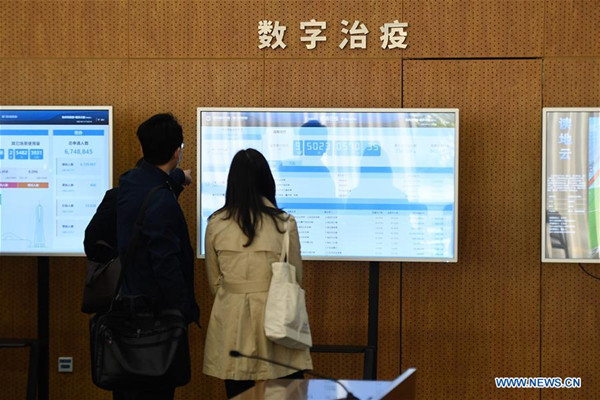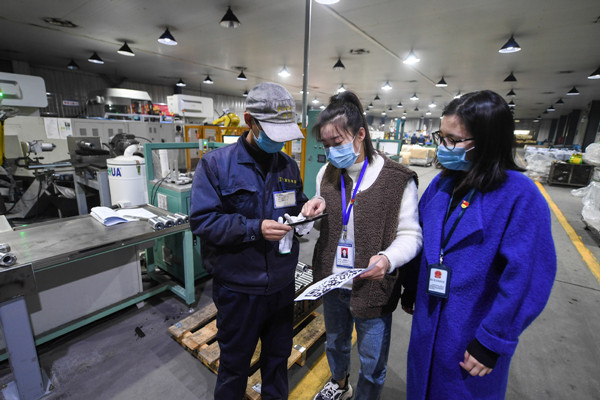Hangzhou City Brain makes life easier

People visit the City Brain Operation Command Center in Hangzhou, East China's Zhejiang Province, on April 13, 2020. Hangzhou's City Brain is a smart city platform aimed at improving urban management through the use of big data, cloud computing, and artificial intelligence, among other cutting-edge technologies. [Photo/Xinhua]
Hangzhou, capital of East China's Zhejiang province, is pioneering efforts to improve its City Brain system as part of the city's ambitious plans to develop Hangzhou into an intelligent city.
The system, which was originally designed in April 2016, uses digital technology to deal with traffic jams in Hangzhou. It is now helping with city governance amid the current novel coronavirus threat.
The City Brain system has now been deployed in 11 major areas, including transportation, city governance, and health care.
Statistics show that the system coordinates and deals with an average of 120 million pieces of data every day. It is making the city smarter and improving the lives of residents.
The system, which was developed by Alibaba and the local government, has significantly alleviated traffic jams.
The system uses cameras to acquire real-time traffic information and commands traffic lights to turn green or red based on real-time road conditions so as to improve transportation efficiency.
Statistics show that drivers now spend 4.6 minutes less time on the 22-kilometer-long Shangtang Elevated Road as a result of the system.
In Xiaoshan district, cars now pass through intersections 15 percent faster as a result of 104 intelligent traffic lights.
In order to deal with difficulties parking around hospitals, the Hangzhou government is using the system to acquire real-time data on the number of parking spots around Hangzhou hospitals, and using this data to help people find empty spaces more quickly.
Thanks to the new system, 252 medical institutes in Hangzhou can now allow patients to pay only once for the entire duration of their stay at the hospital. More than 22 million Hangzhou residents have benefited from this.
The system has also helped overcome information barriers between different government departments, helping to improve city governance.
According to Chen Weiqiang, deputy mayor of Hangzhou, the system has linked data banks from various departments helping officials make decisions more quickly.
In response to the virus outbreak, Hangzhou developed a health QR code system, which was part of its City Brain system.
The system has made things more convenient for migrant workers and helped bolster city governance.
Zhou Jiangyong, Party secretary of Hangzhou, said that the epidemic was both a test for Hangzhou’s governance capabilities as well as an opportunity to improve city governance.

Two civil servants help a man apply for an e-permit to work at a company in Fuyang district, Hangzhou, Zhejiang province on Feb 22, 2020. [Photo/Xinhua]
-
'Nice' to meet you, Hangzhou
May 6, 2024



